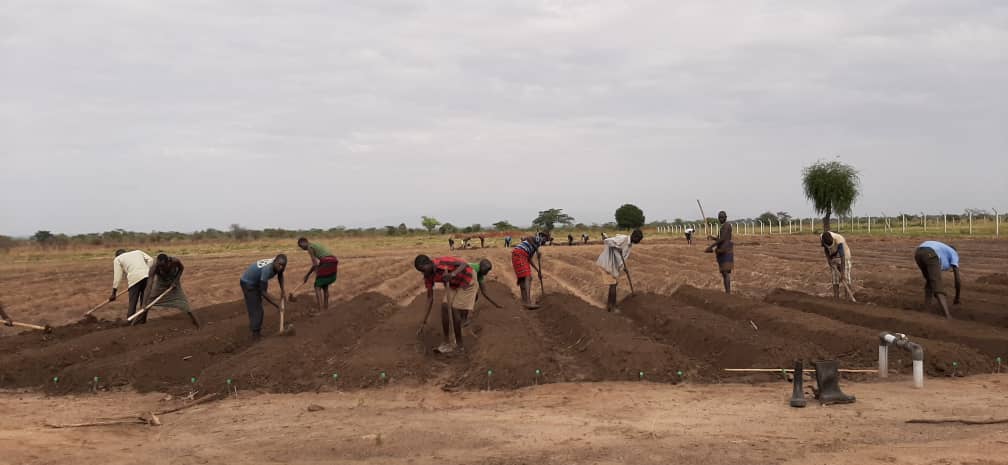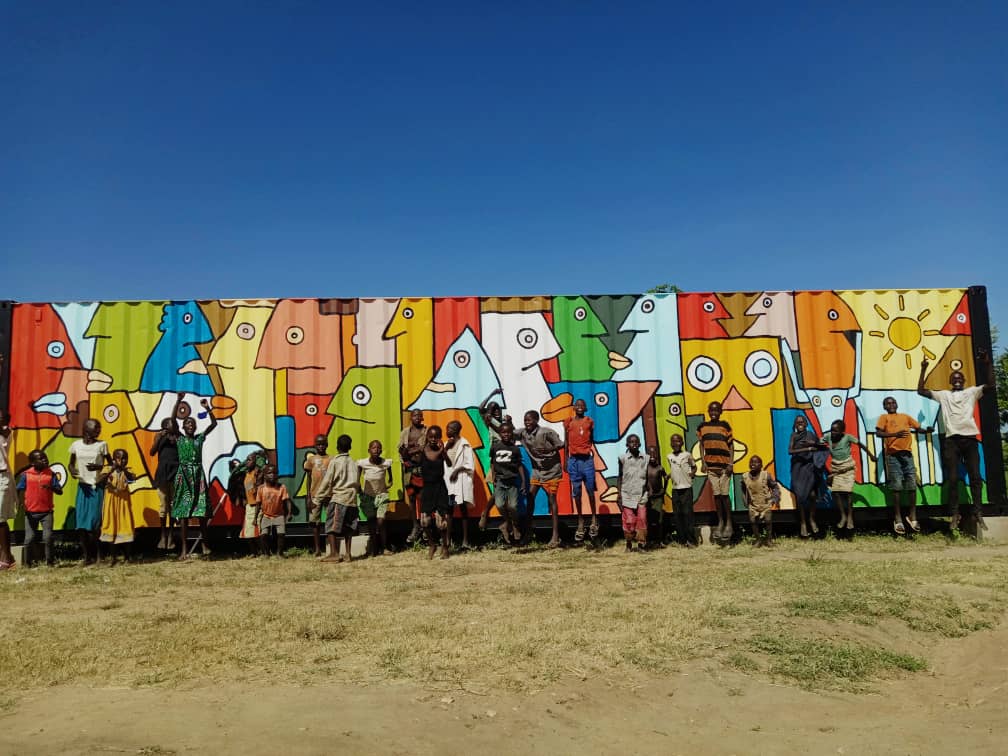BACKGROUND
Karamoja is one of the biggest regions in Uganda, located in the northeast of the country. The main ethnic group there are the Karimojon with a population of approximately 1.7 million. Yet, it is also one of the poorest regions in East Africa. The region contributes only 0.7% of the national GDP, and is one of the most underdeveloped and uneducated parts of the country. Historically mainly inhabited by nomadic herding groups, currently it is mostly domestic scale agricultural communities. Typically, in Karamoja, families own homes with small plots for their domestic needs and sell their extra produce at small, local markets but are not exporting their produce. This small scale business model challenges economic growth and prosperity. To promote economic stability, CoCuDi advises Agromax, an East African based agricultural company, to promote and maintain economic prosperity by adopting the Israeli Kibbutz model as a communal agricultural structure in Karamoja. This business project, managed by Agromax, is supported by the United Nations, the World Bank, the office of the Prime Minister of Uganda, and the Israeli embassy in Nairobi.
OBJECTIVES
Since agriculture based jobs employ 72% of the Ugandan population, spotlighting agricultural projects is an effective way to combat poverty. In partnership with Agromax, CoCuDi aims to bring economic prosperity (a), a sense of community (b), and strong cultural identity based on local culture to the Karamoja region (c).
ACTION ITEMS
(a) Alongside Agromax, CoCuDi brings a deep knowledge and network experience of Israeli Kibbutzim to the Karamoja community. The project shifts the focus from individual farms to a communal farming experience akin to that of a Kibbutz. After introducing the Israeli kibbutz model to the region and the community itself, we bring a deep Israeli knowledge of communal farming and living for the community’s benefit. Collective farming will expand sales from just the local markets and allow them to export their goods for a bigger profit. Rather than individual families selling at local markets, adopting a Kibbutz model yields a better financial outcome. Together, the village functions as a farming organization that has grown farming and sales capacity since the start of the program.
(b) The Kibbutz farming model has also brought a newfound sense of community to the Karamoja. There are currently five settlements and three in development. Four have around 500 members and the other has a population of 1000. Working together has strengthened bonds in the village and created a shared sense of responsibility. Following the communal ethos of the Israeli Kibbutz, the Karamoja project has instilled a stronger, settled collective amongst a previously nomadic population.
(c) CoCuDi, as an NGO, also collaborates with Agromax to involve other facets of culture, art, and society to the villages in Karamoja. Specifically, CoCuDi fosters an exchange program wherein farmers from the settlements in Uganda come to intern in Israel. To empower the collective strength of the new community, CoCuDi introduced public art activities with our local Ugandan partners. We collaborated with ‘Streetlights Uganda’ NGO to paint murals in two of the settlements in Karamoja and to create a shared public space for children and youth in the community. Additionally, we have partnered with Kinneret Innovation Center in the north of Israel, focusing on agricultural and food technologies, to establish a similar innovation hub in Karamoja. In the next five years, we plan to develop a strong connection between Kinneret Innovation Center and Karamoja. We hope that the agriculture-based community created in Karamoja will serve as a model that will spread to other places around the world.

